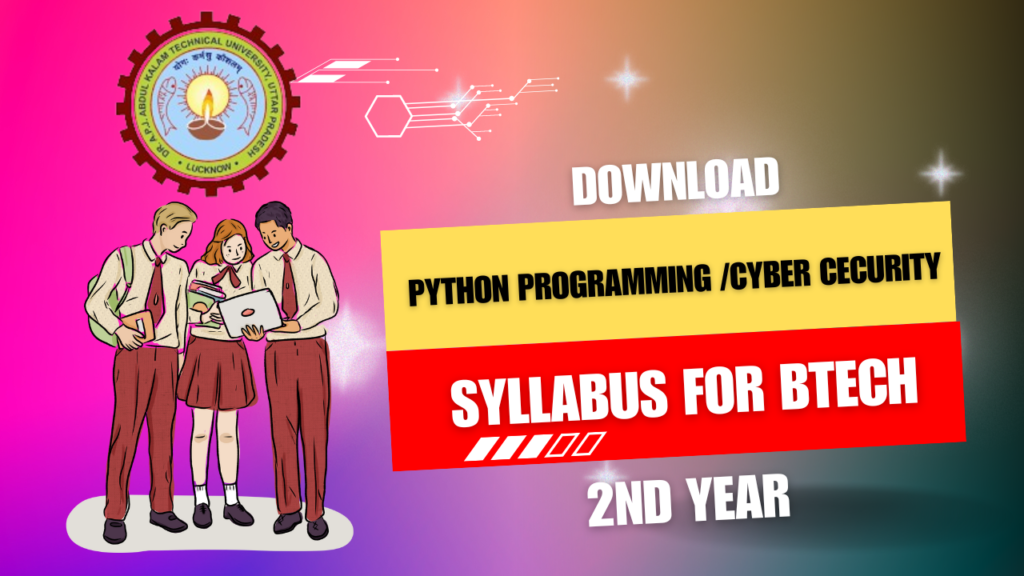Download Python Programming / Cyber Security Aktu syllabus for btech 2nd Year (BCC302 / 402/ B302H /402H ), (BCC301 / 401/ 301H / 401H)
Explore and download Python Programming / Cyber security Aktu syllabus for btech 2nd Year(BCC302 / BCC402/ BCC302H / BCC402H /BCC301 / BCC401/ BCC301H / BCC401H ). If you’re pursuing a B.Tech degree, you know that having the right syllabus is key to navigating your academic path effectively. As the world becomes increasingly digital, subjects like Python Programming and Cyber Security are now pivotal in many engineering courses. In this post, we’ll explore how to access the AKTU syllabus for these subjects for second-year students. Whether you’re a student seeking guidance or an instructor wanting to provide accurate materials, we’ve got you covered with detailed insights and answers.
Understanding the Importance of the Syllabus
Why a Well-Defined Syllabus is Crucial
A syllabus serves as a roadmap for students and educators alike. It outlines course objectives, learning outcomes, and the evaluation criteria that help shape the educational experience. Here are some key reasons why a well-defined syllabus is crucial:
Clarity: It provides clear expectations regarding what students will learn and how they will be assessed.
Structure: A syllabus organizes the course content, breaking it down week by week or module by module.
Resource Reference: It outlines necessary readings, projects, and other resources, helping students prepare effectively.
Courses To Look Out For
In the second year of B.Tech under AKTU, the courses often include:
Python Programming: This course typically covers basics to advanced programming concepts, including data structures and algorithms, web development fundamentals, and framework techniques.
Cyber Security: The focus here is usually on fundamental principles of security, threats, malware types, and protective strategies.
Key Topics in Python Programming and Cyber Security
Python Programming
The syllabus for Python programming generally includes several crucial topics, which may look like this:
Introduction to Python Programming:
Basic syntax, data types (strings, integers, lists).
Flow control (if statements, loops).
Data Structures:
Lists, tuples, dictionaries, and sets.
Advanced Topics:
Object-oriented programming, file handling, and exception handling.
Use of libraries like NumPy and Pandas for data manipulation.
Cyber Security
In the Cyber Security syllabus, expect the following key areas:
Fundamentals of Cyber Security:
Understanding security principles, risks, and vulnerabilities.
Types of Cyber Threats:
Malware analysis, phishing, and Denial of Service attacks.
Protective Measures:
Firewalls, encryption techniques, and security policies.
Conclusion
In today’s digital era, being well-versed in Python Programming and Cyber Security is essential for every B.Tech student. By knowing how to access and utilize the AKTU syllabus, you set yourself on a path to academic success. It not only guides your learning but also equips you with the skills necessary for a future career in technology.
Remember, the right resources can make all the difference in your educational journey. Start downloading your syllabus today, and don’t hesitate to reach out to your professors if you have any questions!
Ready to dive into programming or security? Check out the AKTU resources now and make the most of your learning experience!

